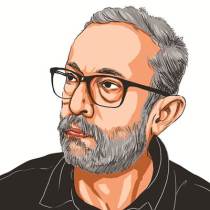Who’s watching the regulator?
UGC has outlived its use, but so have councils that regulate professional education and practice. These, too, cry for reform.

The proposed HECI will also subsume some sections of the Advocates Act 1961 and the Architects Act, 1972, legislations that created the Bar Council of India and the Council of Architecture of India respectively.
Last week, the Ministry of Human Resource Development ( MHRD) released its draft of the proposed Higher Education Commission of India Act (HECI). While one of the objectives of this legislation is to replace the UGC Act — and that is, perhaps, a welcome move considering that the UGC had not really covered itself with glory since its inception — there are many other reforms which need to be done if the system is to be cleansed and made more relevant .
The proposed HECI will also subsume some sections of the Advocates Act 1961 and the Architects Act, 1972, legislations that created the Bar Council of India and the Council of Architecture of India respectively. These sections are those relevant to any matter concerning the determination, co-ordination, maintenance of standards in, and promotion of, higher education and research in legal and architectural education. This is a good move, particularly because almost none of the councils, which have been mandated to regulate professional education, have done anything of worth in the many decades of their existence. The recent NEET (medical education) and NATA (architectural education) fiascos are examples of the malaise that exist in these councils.
Which brings us to the moot question. Can the dozen odd professional councils that exist due to parliamentary statutes be allowed to perform their duties without being regulated by a super regulator? Have they been able to achieve the objectives of either maintaining standards of education or of professional conduct of their registered members?
The answer to these two is obvious. Most councils have reduced themselves into self-serving clubs, much like many of our other so-called autonomous organisations, and have forgotten that their original mandate was to serve the common public good, not the good of their own brethren.
Perhaps solutions to the issues mentioned above lie in looking into how some of the developed world’s democratic institutions have evolved. In the US, there is the concept of a super regulator that regulates autonomous regulators, particularly of professional sectors which need specialised knowledge. Similar democratic structures exist in many European democracies. Maybe we need to learn from their experiences. In India, we have a similar concept operating in the legal sphere — we have domain-specific tribunals, and then appellate tribunals above them for issues that need a higher level of appeal.
Perhaps, we need to develop the structure of a super regulator only for regulators of professional bodies. Hopefully in the near future, we would have legislative enactments for professionals, who advise us on financial matters and other emerging professional sectors. The Actuaries Act of 2006, which deals only with insurance-related professionals, is one such example. But even this recent law does not segregate education from professional conduct.
Should the education of a profession be legislatively segregated from that of the powers to regulate professional conduct? Should a professional be permitted to practise a profession (and his professional conduct be regulated) by a body which is not connected to that (body) which has regulated the education of that profession? These and associated questions should be now urgently addressed by the central government — if for no other reason than the fact that the common person reposes a huge amount of trust in a professional’s presumed competence in his chosen field of work. Issues and terms like “conflict of interest” are only now creeping into public vocabulary — a generation ago they were not part of the conversation even in institutions of higher education.
While the above matters are issues which need to be addressed by think tanks/instruments of governance, which go well beyond the central government ministries, the MHRD has more work cut out. The AICTE (All India Council for Technical Education) Act is another one which needs a careful relook, especially as this body has also neither fulfilled its stated mandate nor covered itself in glory. Skill development is now a separate ministry; the AICTE Act must be amended to ensure that the body, if it is to exist at all, has a specific mandate to work in specific sectors of the economy. Nothing more, nothing less.
The Institutions of National Importance (INIs) have been kept out of purview of the proposed HECI Act. While this is a good move, there is a need for the INIs to become truly autonomous in aspects of research as well as methods of teaching. They need to be encouraged to create both their own syllabi and their teaching methodologies need to be revamped so that better professionals are produced.
Lastly, remember the old principle: Test the concrete, not the ingredients, nor the cement. Test whether the professional who emerges from an institution is worthy of being permitted to practise a profession. And that testing should be done by an independent separate body, not the HECI or the councils that regulate professional conduct, but another higher body that remains at arm’s length from both the educationists and the professional regulators. Separate the wheat from the chaff.
The writer is an architect. Views are personal
For all the latest Opinion News, download Indian Express App







































No hay comentarios:
Publicar un comentario